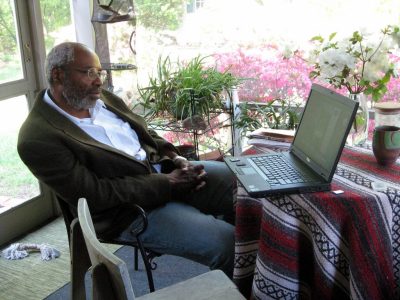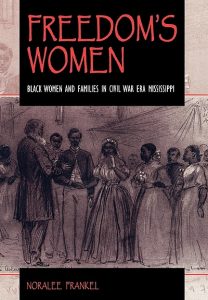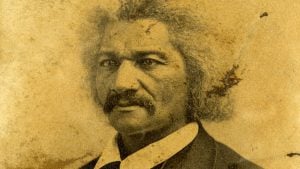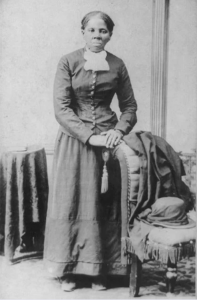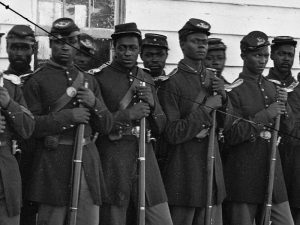All Global Research articles can be read in 51 languages by activating the “Translate Website” drop down menu on the top banner of our home page (Desktop version).
Visit and follow us on Instagram at @crg_globalresearch.
***
By 1860, the dominant industry within southern agriculture was cotton production which utilized the unpaid labor of Africans on lands which were stolen from the Indigenous people of North America.
.
During that presidential election year the issue of the expansion of slavery as an economic system underlined the struggle over who would become the leader of the U.S. and serve as the command-and-chief in the coming four year war which left hundreds of thousands dead and millions displaced.
.
The military outcome of the civil war resulted in the legislative abolition of African enslavement by Congress in 1865. Nonetheless, the question of the future role and status of the nearly four million people and another 500,000 of their kindred who were designated as free persons of color, remains unanswered until today some 160 years since the enactment of the Emancipation Proclamation on January 1, 1863.
.
A series of Southern state-engineered referendums on secession from the U.S. were held during late 1860 and early 1861. In April of that year, the dominant political forces in South Carolina refused to allow their military units to be mobilized by the administration of President Abraham Lincoln to defend what the government considered to be the territorial integrity of the U.S. Lincoln ordered the attack on Fort Sumter and the war would begin.
.
Developments in the war between the U.S. and the Confederate States of America (CSA) in 1861 and the first half of 1862 raised doubts as to whether the Union forces could prevail against the slave-holding class. Although the war had been framed as a conflict pitting southern slave-owning states against their northern free labor counterparts, there were many within the North who maintained sympathies for the Confederacy.
.
In addition, there were those whites in the northern states who rejected the prospect of joining the Union military forces in a war which was perceived as a campaign to end slavery. Concurrently, when the war erupted, thousands of enslaved and free Africans fled to the Union military installations seeking to volunteer for service in Lincoln’s forces.
.
Resistance to Enslavement and the Arming of Black Union Troops
.
The notion of providing arms and legal protection to utilize them in a war which would determine the political status of the African people inside the country stoked fear among broad sections of the ruling class. As early as 1792, a federal law barred Africans from bearing arms for the U.S. military. This was declared even though Africans did participate on both sides during the War for Separation from Britain (1776-1783) and later in the War of 1812.
.
Despite the racist propaganda that people of African descent were inherently inferior to Europeans, the white slavocracy and burgeoning northern industrialists remembered quite well the periodic revolts waged to put an end to human bondage. The legacies of the Louisiana Coast rebellion of 1811 which was influenced by the Haitian Revolution of 1791-1804; the Denmark Vesey insurrection plot of 1822 in South Carolina; Nat Turner’s crusade to cease arms to carry out a full blown anti-slavery war in 1831; to the attacks at Harper’s Ferry led by John Brown, Osborn Anderson and their compatriots in 1859 ,were very much in the uppermost of the minds of the slave owning class.
.
Resistance to enslavement by Africans has been well documented in the innumerable ads taken out in mainstream newspapers seeking the recapture of people who were fleeing the plantations and other bases of exploitation. The existence of laws and executive orders by local, state and federal governmental structures which restricted the movement of Black people were numerous from the times of British colonialism through the antebellum period.
.
The decision to enlist African men and women into the Union war efforts was done out of military necessity. The Lincoln administration had been under pressure to recruit African soldiers and operatives by leaders such as abolitionist and journalist Frederick Douglass who emphatically stated:
.
“Once let the Black man get upon his person the brass letter, U.S. let him get an eagle on his button, and a musket on his shoulder and bullets in his pocket, there is no power on earth that can deny that he has earned the right to citizenship.”
.
.
Frederick Douglass
.
When General John C. Fremont in Missouri and General David Hunter in South Carolina issued proclamations that emancipated enslaved Africans in their military regions and permitted them to enlist in the Union military, their orders were overridden by superiors. However, by mid-1862, there was the decline of white volunteers amid the growing demands for personnel to staff the war machinery.
.
Therefore, a background report written by the U.S. National Archives and Records Administration, emphasizes that:
.
“As a result, on July 17, 1862, Congress passed the Second Confiscation and Militia Act, freeing slaves who had masters in the Confederate Army. Two days later, slavery was abolished in the territories of the United States, and on July 22 President Lincoln presented the preliminary draft of the Emancipation Proclamation to his Cabinet. After the Union Army turned back Lee’s first invasion of the North at Antietam, MD, and the Emancipation Proclamation was subsequently announced, Black recruitment was pursued in earnest. Volunteers from South Carolina, Tennessee, and Massachusetts filled the first authorized Black regiments. Recruitment was slow until Black leaders such as Frederick Douglass encouraged Black men to become soldiers to ensure eventual full citizenship. Two of Douglass’s own sons contributed to the war effort. Volunteers began to respond, and in May 1863 the Government established the Bureau of Colored Troops to manage the burgeoning numbers of Black soldiers.” (
https://www.archives.gov/education/lessons/blacks-civil-war)
.
.
At the conclusion of the civil war in April 1865, some 179,000 African men had served as soldiers in the Army constituting approximately 10% of the enlisted. Another 19,000 carried out their service in the Navy. African women who could not formally enlist in the military, however, contributed immensely to the defeat of the Confederacy as intelligence operatives, scouts, medical workers and laborers. Perhaps one of the most well-known participants in the Union military forces was anti-slavery fighter Harriet Tubman from the state of Maryland.
.
.
Harriet Tubman
.
Black soldiers were subjected to racial discrimination inside the Union military. Initially they were given less pay and substandard equipment and living conditions. Those African enlisted personnel would face harsher treatment when captured by Confederate military units and were subjected to torture and re-enslavement.
.
Despite these difficulties, the African soldiers and other participants in the Union war effort engaged militarily with Confederate forces in battles at Milliken’s Bend in Louisiana; in Petersburg, Virginia; and in Nashville, Tennessee. In July 1863, an assault on Fort Wagner, South Carolina, by the 54th Regiment of Massachusetts Volunteers, resulted in the deaths of two-thirds of their officers and half of the troops. By the conclusion of the war, 16 Black soldiers were awarded the Medal of Honor for their work in the war.
.
Over and above the role of Africans enlisted in the Union forces and other personnel, it was the enslaved people overall who in great numbers collectively rejected the system of human bondage. A tradition of flight, rebellion and sabotage against enslavement proved critical in the destruction of the antebellum economy.
.
The challenge after the civil war was the reconstruction of democratic governance in a manner in which African Americans would achieve full equality and the right to self-determination. With the defeat of the slavocracy, the debate would be centered around the future rights and responsibilities of the people of African descent.
